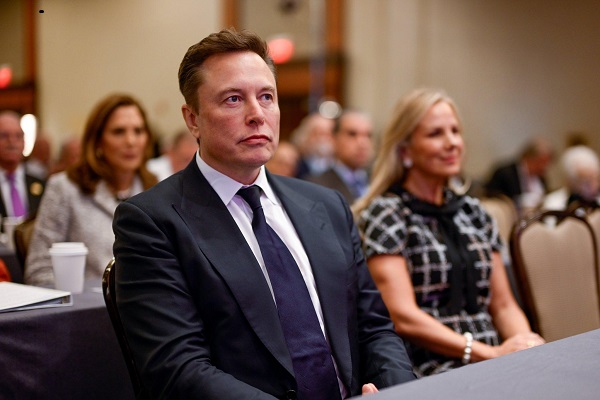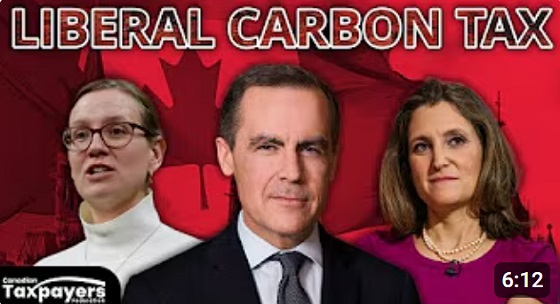Business
Elon Musk says X targeted by “massive cyberattack” originating in Ukraine

 MxM News
MxM News
Quick Hit:
Elon Musk revealed Monday that X was the target of a “massive cyberattack,” with IP addresses linked to the Ukraine region. Musk noted the attack was highly coordinated and suggested it could involve a large group or a nation-state.
Key Details:
-
Speaking to Fox Business’ Larry Kudlow, Musk said, “We’re not exactly sure what happened, but there was a massive cyberattack to try to bring down the ecosystem with IP addresses originating in the Ukraine area.”
-
Earlier Monday, Musk posted about the attack on X, stating, “There was (still is) a massive cyberattack against X,” adding that the platform faces daily attacks but this one was particularly well-resourced.
-
Musk, who acquired X (formerly Twitter) for $44 billion in October 2022, has faced increasing pressure as his companies, including Tesla and SpaceX, deal with coordinated protests that he alleges are backed by left-wing billionaires like George Soros and Reid Hoffman.
Diving Deeper:
X suffered a significant cyberattack Monday, according to its owner Elon Musk. During an interview with Fox Business’ Larry Kudlow, Musk said that while the full details were unclear, the attack sought to “bring down the ecosystem” and had origins tied to the Ukraine region. He suggested the attack was well-funded and likely involved either a large, coordinated group or a nation-state.
Musk had earlier addressed the incident on X, stating that while the platform regularly faces cyber threats, this particular attack was on a different scale. “We get attacked every day, but this was done with a lot of resources,” he wrote, adding that efforts were underway to trace those responsible.
The timing of the cyberattack raises questions, as it comes amid widespread protests against Musk’s other ventures, particularly Tesla. Musk has accused high-profile Democrat donors, including George Soros and LinkedIn co-founder Reid Hoffman, of financing the demonstrations. He has not provided direct evidence to support the claim, but the protests have coincided with an intensifying political battle over Musk’s influence in both the private sector and government.
Musk’s role in the Trump administration as the head of the Department of Government Efficiency has drawn praise from the president. Trump has credited Musk with spearheading efforts to reduce government waste and save taxpayers billions. Meanwhile, Musk’s companies, including SpaceX, hold lucrative contracts with the Department of Defense, making them frequent targets of scrutiny and opposition from political adversaries.
As X continues to investigate the cyberattack, the broader implications remain unclear. Whether a nation-state or an organized cybercriminal group was behind the attack could have significant ramifications, particularly given the geopolitical tensions surrounding Ukraine.
2025 Federal Election
MEI-Ipsos poll: 56 per cent of Canadians support increasing access to non-governmental healthcare providers

-
Most believe private providers can deliver services faster than government-run hospitals
-
77 per cent of Canadians say their provincial healthcare system is too bureaucratic
Canadians are increasingly in favour of breaking the government monopoly over health care by opening the door to independent providers and cross-border treatments, an MEI-Ipsos poll has revealed.
“Canadians from coast to coast are signalling they want to see more involvement from independent health providers in our health system,” explains Emmanuelle B. Faubert, economist at the MEI. “They understand that universal access doesn’t mean government-run, and that consistent failures to deliver timely care in government hospitals are a feature of the current system.”
Support for independent health care is on the rise, with 56 per cent of respondents in favour of allowing patients to access services provided by independent health entrepreneurs. Only 25 per cent oppose this.
In Quebec, support is especially strong, with 68 per cent endorsing this change.
Favourable views of accessing care through a mixed system are widespread, with three quarters of respondents stating that private entrepreneurs can deliver healthcare services faster than hospitals managed by the government. This is up four percentage points from last year.
Countries like Sweden and France combine universal coverage with independent providers and deliver faster, more accessible care. When informed about how these health systems run, nearly two in three Canadians favour adopting such models.
The poll also finds that 73 per cent of Canadians support allowing patients to receive treatment abroad with provincial coverage, which could help reduce long wait times at home.
Common in the European Union, this “cross-border directive” enabled 450,000 patients to access elective surgeries in 2022, with costs reimbursed as if they had been treated in their home country.
There’s a growing consensus that provincial healthcare systems are overly bureaucratic, with the strongest agreement in Alberta, B.C., and Quebec. The proportion of Canadians holding this view has risen by 16 percentage points since 2020.
Nor do Canadians see more spending as being a solution: over half say the current pace of healthcare spending in their province is unsustainable.
“Governments shouldn’t keep doubling down on what isn’t working. Instead, they should look at what works abroad,” says Ms. Faubert. “Canadians have made it clear they want to shift gears; now it’s up to policymakers to show they’re listening.”
A sample of 1,164 Canadians aged 18 and older was polled between March 24th and March 28th, 2025. The margin of error is ±3.3 percentage points, 19 times out of 20.
The results of the MEI-Ipsos poll are available here.
* * *
The MEI is an independent public policy think tank with offices in Montreal, Ottawa, and Calgary. Through its publications, media appearances, and advisory services to policymakers, the MEI stimulates public policy debate and reforms based on sound economics and entrepreneurship.
2025 Federal Election
POLL: Canadians say industrial carbon tax makes life more expensive

The Canadian Taxpayers Federation released Leger polling showing 70 per cent of Canadians believe businesses pass on most or some of the cost of the industrial carbon tax to consumers. Meanwhile, just nine per cent believe businesses pay most of the cost.
“The poll shows Canadians understand that a carbon tax on business is a carbon tax on Canadians that makes life more expensive,” said Franco Terrazzano, CTF Federal Director. “Only nine per cent of Canadians believe Liberal Leader Mark Carney’s claim that businesses will pay most of the cost of his carbon tax.
“Canadians have a simple question for Carney: How much will your carbon tax cost?”
The federal government currently imposes an industrial carbon tax on oil and gas, steel and fertilizer businesses, among others.
Carney said he would “improve and tighten” the industrial carbon tax and extend the “framework to 2035.” Carney also said that by “changing the carbon tax … We are making the large companies pay for everybody.”
The Leger poll asked Canadians who they think ultimately pays the industrial carbon tax. Results of the poll show:
- 44 per cent say most of the cost is passed on to consumers
- 26 per cent say some of the cost is passed on to consumers
- 9 per cent say businesses pay most of the cost
- 21 per cent don’t know
Among those decided on the issue, 89 per cent of Canadians say businesses pass on most or some of the cost to consumers.
“Carbon taxes on refineries make gas more expensive, carbon taxes on utilities make home heating more expensive and carbon taxes on fertilizer plants increase costs for farmers and that makes groceries more expensive,” Terrazzano said. “A carbon tax on business will push our entrepreneurs to cut production in Canada and increase production south of the border and that means higher prices and fewer jobs for Canadians.”
-

 2025 Federal Election2 days ago
2025 Federal Election2 days agoNo Matter The Winner – My Canada Is Gone
-

 2025 Federal Election2 days ago
2025 Federal Election2 days agoASK YOURSELF! – Can Canada Endure, or Afford the Economic Stagnation of Carney’s Costly Climate Vision?
-

 Alberta2 days ago
Alberta2 days agoMade in Alberta! Province makes it easier to support local products with Buy Local program
-

 2025 Federal Election2 days ago
2025 Federal Election2 days agoCSIS Warned Beijing Would Brand Conservatives as Trumpian. Now Carney’s Campaign Is Doing It.
-

 2025 Federal Election1 day ago
2025 Federal Election1 day agoInside Buttongate: How the Liberal Swamp Tried to Smear the Conservative Movement — and Got Exposed
-

 Alberta2 days ago
Alberta2 days agoProvince to expand services provided by Alberta Sheriffs: New policing option for municipalities
-

 Bruce Dowbiggin1 day ago
Bruce Dowbiggin1 day agoIs HNIC Ready For The Winnipeg Jets To Be Canada’s Heroes?
-

 Dr. Robert Malone1 day ago
Dr. Robert Malone1 day agoThe West Texas Measles Outbreak as a Societal and Political Mirror








